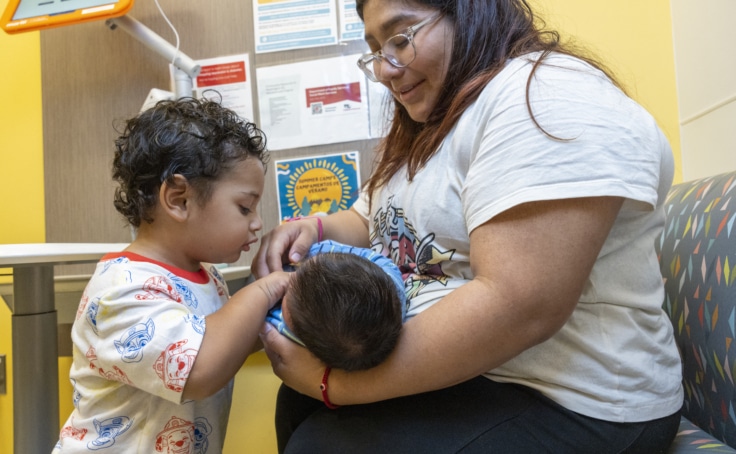Early Relational Health and IECMH: What do they mean?
Experts weigh in on the relationship between the terms Infant and Early Childhood Mental Health (IECMH) and Early Relational Health (ERH).

Over the past year, core members of ZERO TO THREE’s team of experts have been working with a team from Nutrure Connection, an organization committed to advancing early relational health, to explore and seek clarification on the relationship between the terms Infant and Early Childhood Mental Health (IECMH) and Early Relational Health (ERH). After several meetings and interviews with dozens of leaders in the field, we have finalized the statement below.
Families and communities have long known - and a growing body of research confirms - that early relationships matter!
The health and well-being of babies and young children is firmly rooted in early relationships that are nurturing, responsive, and supportive, and which are nested in their community, culture, and language. Thriving relationships benefit children and the adults in their life. In turn, caregivers benefit from having the support they need to be well themselves and to foster nurturing relationships with babies and young children.
Movement toward supporting children’s development in the early years is ever evolving. Our collective understanding of children, families and communities and the scientific knowledge-base is becoming more expansive and inclusive. There are many sectors and services that contribute to child and family well-being including health, mental health, social work, early care and education, early intervention, family support and other disciplines. Each profession uses a variety of terms to describe its focus on the well-being of babies, young children, parents and other caregivers as well as the spectrum of relational and mental health services needed to support them.
We acknowledge the many shared elements that are core to both terms and to recognize that these terms are two of many terms often used interchangeably to describe early emotional health and wellbeing, and the vital nature of nurturing caregiving relationships.
Matthew Melmed, Executive Director, Zero to Three
Infant and early childhood mental health (IECMH) and early relational health (ERH) are two similar terms that share a core focus on the emotional well-being and connection between a baby or young child and the important adults in their life. Though there can be differences in the application of these terms, the importance of healthy relationships and the context of family, community and culture to infants, young children, and their families is at the center of both.
No term perfectly fits every situation with every family or every community, and professionals and leaders should use the language and approaches that resonate best with their audience and within the context of the services being provided. Having an array of terms and language that describe similar or concentric services can sometimes create confusion, an urgency for reductionism, and feel a bit messy. Like human development, there is a complexity to the development of a shared language of a field of multidisciplinary professionals committed to supporting the health, mental health and developmental needs of infants, toddlers, young children and their families.

The well-being of babies and young children is inextricably linked to the quality of their earliest relationships—relationships shaped by their families, communities, and cultural contexts. It is to the benefit of babies and families for us to be nimble and expansive in our language, to effectively communicate with all audiences.
Lindsay Usry, Director, Infant and Early Childhood Mental Health Strategy
The early childhood field will continue to evolve its framing and language as we learn and grow together in the shared work of partnership with families and communities to support young children’s growth and development. Regardless of the terms used, we are united in our belief that leaders, policy makers and funders should recognize the immense importance of nurturing early relationships and the mental and relational health of babies and young children, and provide the support necessary for the health and wellbeing of children, families, and the professionals who work tirelessly on their behalf.
By focusing on nurturing, responsive caregiving and fostering collaboration across sectors, we can ensure every baby has the foundation they need to thrive. Together, we must advocate for resources and policies that prioritize early mental and relational health, empowering families and the professionals who champion their growth.
Lindsay Usry, Director, Infant and Early Childhood Mental Health Strategy
IECMH Consultation Cost Calculator
For professionals involved in infant and early childhood mental health consultation programs, this tool helps determine the true costs of valuable services and supports for infants, toddlers, young children and families, providing evidence-based and accurate estimations for infant and early childhood mental health consultation.

